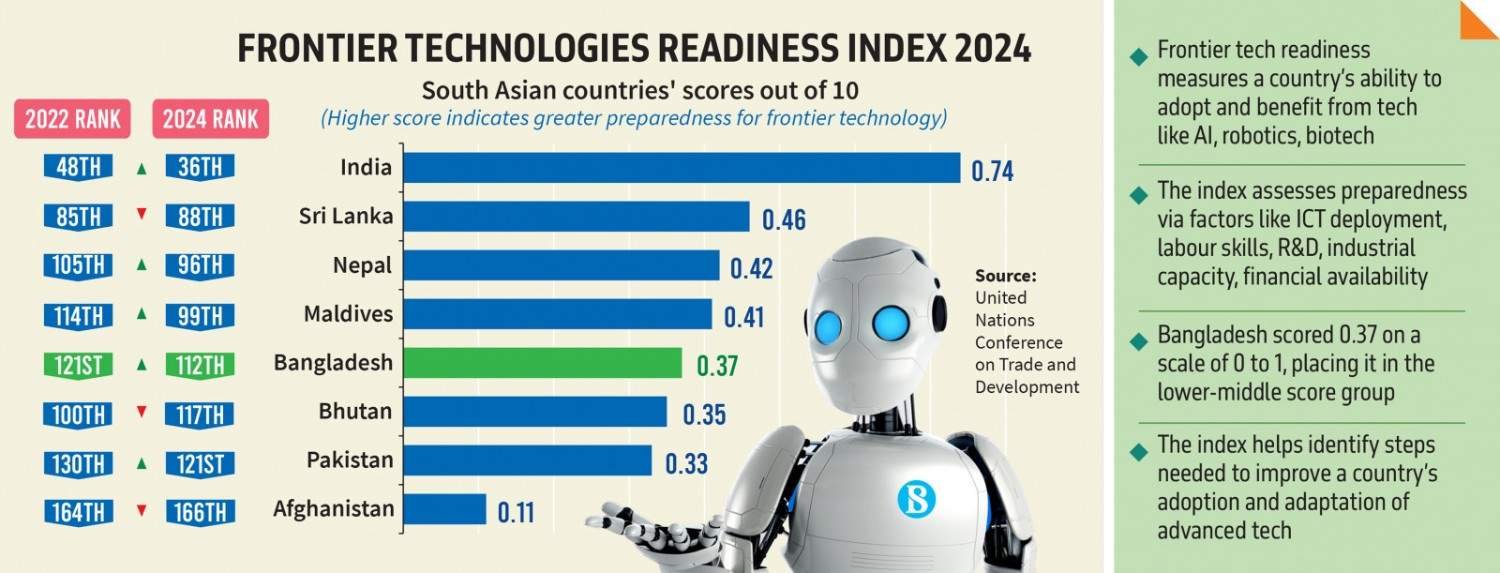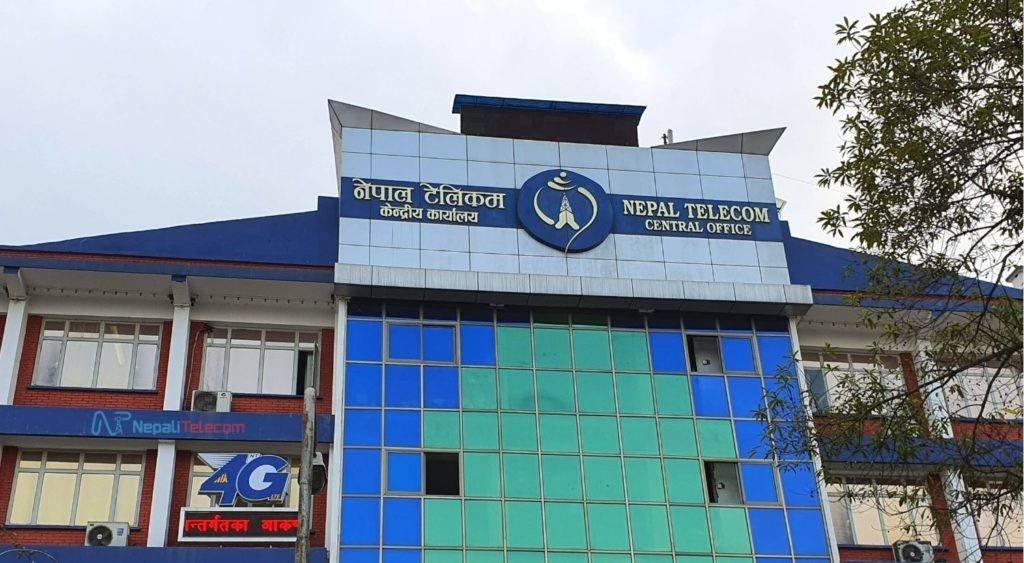Bangladesh has made significant progress in its readiness to adopt frontier technologies, ranking 112th out of 170 countries in the “Technology and Innovation Report 2025” published by the United Nations Conference on Trade and Development (UNCTAD) on April 3, 2024.
Frontier technologies, including artificial intelligence (AI), robotics, biotechnology, and green technologies, are considered crucial for a country’s economic growth and development. The Frontier Technology Readiness Index evaluates a nation’s ability to adopt, develop, and benefit from these technologies based on indicators such as infrastructure, skills, innovation capacity, and policies.
Bangladesh’s ranking in this index shows a notable improvement, up from 121st place in 2022. It stands ahead of South Asian countries like Bhutan, Pakistan, and Afghanistan, with India leading the region. The index takes into account several factors, including ICT deployment, labor skills, research and development (R&D), industrial capacity, and access to finance. With a score of 0.37, Bangladesh falls into the lower-middle score group.
Among the five indicators, Bangladesh performed best in R&D, ranking 61st globally. It ranked 90th in access to finance, 108th in industrial capacity, and 132nd in labor skills. However, the country’s performance in ICT development was its weakest, placing 140th out of 170 nations. The ICT development indicator considers the number of internet users and internet speed, both of which need significant improvement in Bangladesh.
Understanding Frontier Technologies
Frontier technologies include cutting-edge advancements such as AI, robotics, blockchain, renewable energy technologies, and gene editing. These technologies have immense potential for transforming economies, improving sustainability, and addressing complex challenges. The UNCTAD report categorizes these technologies into three groups: Industry 4.0 technologies (AI, IoT, Big Data, Blockchain, etc.), Green technologies (solar, wind, biofuels, electric vehicles, etc.), and Other frontier technologies (nanotechnology, gene editing).
According to the UNCTAD index, the best-prepared countries for frontier technologies are the United States, Sweden, the United Kingdom, the Netherlands, Singapore, Switzerland, and South Korea. In contrast, many African and Latin American countries are among the least prepared.
India Leads South Asia in Frontier Technology
India stands out as the best-prepared country in South Asia, ranking 36th globally with a high score of 0.74. Sri Lanka ranks 88th, followed by Nepal at 96th and the Maldives at 99th. Bangladesh ranks 112th, while Bhutan and Pakistan follow at 117th and 121st, respectively. Afghanistan, at 166th, is classified in the low score group.
AI’s Growing Economic Impact
The report highlights that AI, projected to reach a market value of $4.8 trillion by 2033, will become a key driver of global digital transformation. However, access to AI infrastructure and expertise is concentrated in a few developed economies, creating challenges for developing countries. As of 2023, about two-thirds of developed countries had a national AI strategy, while only six of 89 strategies were from Least Developed Countries (LDCs). Bangladesh is one of the few LDCs that has initiated an AI strategy, joining other nations like Sierra Leone in leading the way.
Despite its growth potential, AI’s benefits may be unevenly distributed. The report notes that a few major corporations, primarily based in the US and China, dominate the global AI market, contributing to a widening technological divide. Developing countries may struggle to leverage AI’s potential without significant investments in infrastructure, education, and R&D.
In conclusion, Bangladesh’s growing preparedness for frontier technologies marks a positive step, but the country must address gaps in infrastructure, skills, and policy to fully realize the benefits of these transformative technologies.















